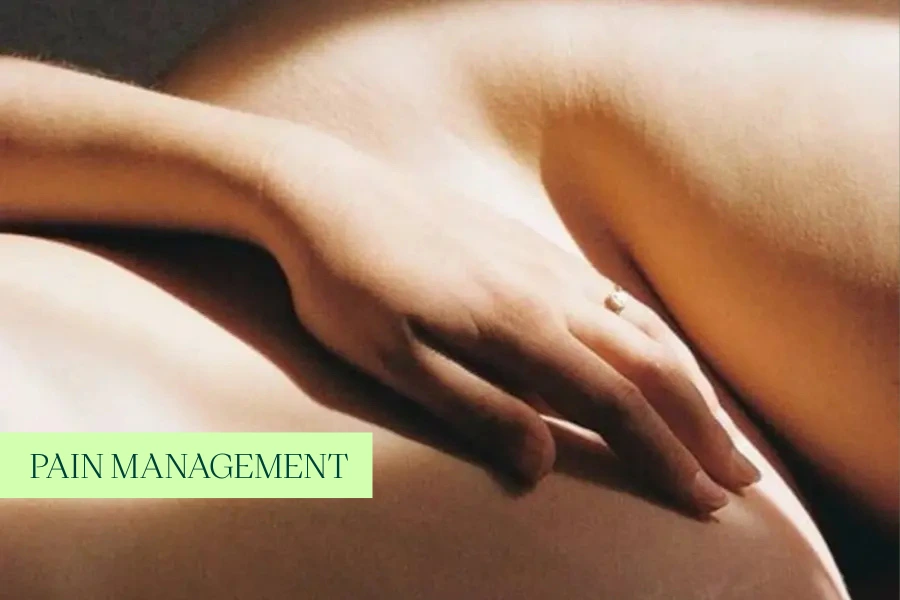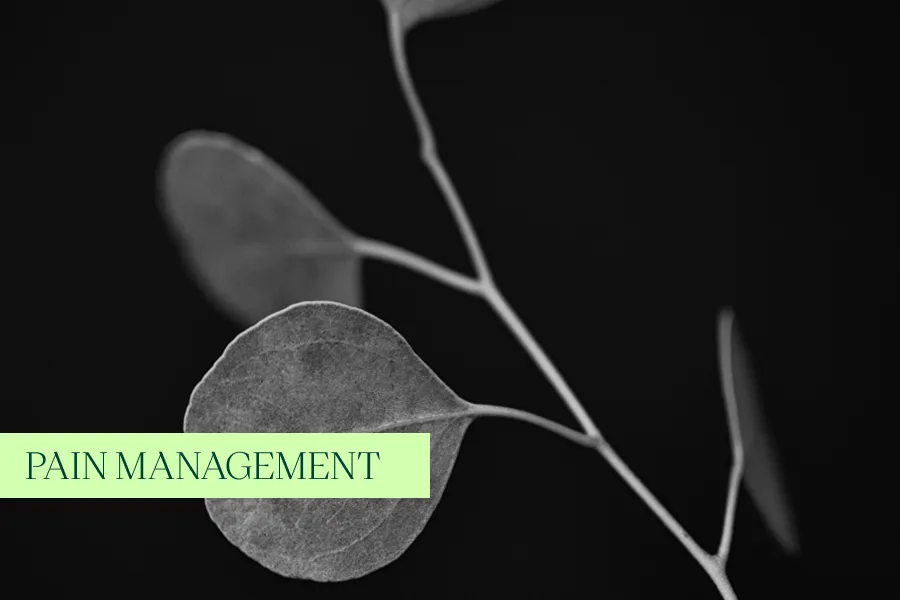While important progress has been made for women, many still have to overcome obstacles to participate equally within communities. The healthcare industry is one that’s always going through radical changes – and as a team led by incredible women in healthcare at Astrid, we’re excited to see more women leaders use innovation to solve more problems in healthcare.
The IWD theme for 2024 is Count Her In – investing in women and accelerating progress.
Below we’ve interviewed some of the women leaders at Astrid who share their first-hand experiences in the industry. Learn from their advice for women stepping into healthcare, what it’s like to work with strong women leaders, challenges they’ve faced, and thoughts on the future of women in healthcare.
Introducing the women leaders of Astrid
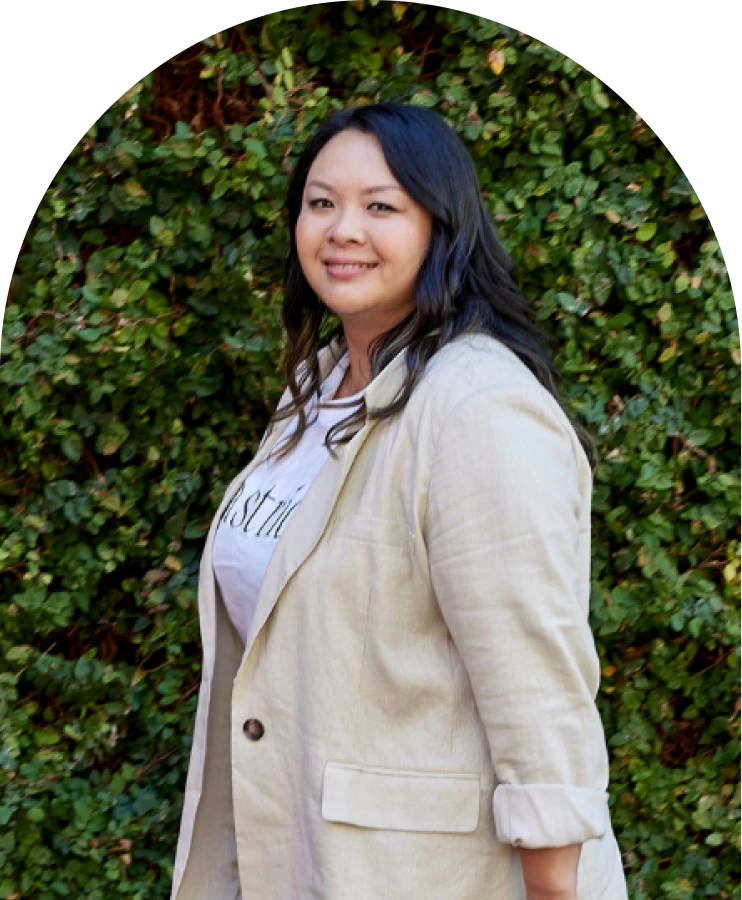
Lisa Nguyen
Founder at Astrid Dispensary & Clinic
What do you love about being within a team of women leaders?
Building the Astrid team has been an incredibly rewarding experience. Since day one, I’ve tried to create an environment that fosters innovation, empathy, and a shared commitment to excellence in patient care. To support growth, I think leaders need to create safe and inclusive spaces where every team member feels valued and heard. I’m impressed by each person on our team and I love seeing my team grow – within their roles, personally and sometimes when they leave Astrid.
My motivation to create a healthy work environment was drawn from the numerous exceptional leaders I’ve met in previous positions and academic settings. They have illuminated the crucial aspects of effective leadership and team nurturing, including valuable lessons – on both the dos and don’ts of guiding a team. This blend of inspiration and constant learning has been pivotal in shaping our approach leadership at Astrid. We place a big emphasis on compassion, resilience, and the pursuit of excellence.
What advice would you give to other women considering a career in healthcare?
My advice is to embrace the journey with patience, passion and dedication. The path involves rigorous study and practical experience, which are both critical in building a solid foundation in healthcare. We’ve got to be continuously learning.
Healthcare is not just about science; it’s profoundly about people.
Take every opportunity to learn, engage with diverse teams, and immerse yourself in different aspects of healthcare. The landscape is evolving, and your curiosity and willingness to adapt will be your greatest assets. In my journey from a clinical pharmacist to the founder of Astrid, I tried to seek out hands-on opportunities and those valuable real-world experiences.
The landscape of healthcare, especially our industry, is ever-evolving. Each person’s contribution can lead to transformative changes in patient care and the broader healthcare system. Staying curious and adaptable is key to making a meaningful impact.
How do you see the role of women in healthcare evolving in the next decade?
The next decade promises an exciting evolution for women in healthcare. We’re on the cusp of witnessing an unprecedented increase in female representation across all levels, particularly in leadership and decision-making roles. This shift is not just about numbers; it’s about the diverse perspectives and innovative approaches to longstanding challenges that women bring to the table.
As healthcare continues to face complex challenges, the insights, empathy, and resilience of women will be instrumental in driving forward-thinking solutions, policy reforms, and patient-centred care. The growth of female-led initiatives, like Astrid, exemplifies the shifting dynamics and the potential for women to shape the future of healthcare, particularly in emerging fields like natural medicines and prevention wellness.
The future will see women not only filling these roles but redefining them, ensuring healthcare is more inclusive, equitable, and effective than ever before.
What are your biggest learning moments or challenges you’ve overcome in your career journey?
My career journey, particularly within our industry sector, has been filled with learning moments and challenges. One of the most significant challenges I’ve faced was navigating the complexities of the medicinal cannabis industry from its infancy in Australia. Engaging with pharmacy staff on the frontlines, advocating for patient access, and destigmatizing use required resilience and adaptability.
Trusting in my vision for Astrid and aiming high were essential.
Each obstacle, from funding hurdles to changing public perception, reinforced the belief that perseverance and a patient-centred approach can lead to remarkable outcomes.
When we first launched, I was the pharmacist on the front-line during the pandemic. Since then, we’ve built bigger strategies and systems at Astrid so our patients can benefit from individualised care. I work hard to inspire our staff to see the transformative power of believing in goals and aspirations.

Dr Shu Ng
Chief Medical Officer at Astrid Clinic
What do you love about being within a team of women leaders?
Being part of a team of women leaders in healthcare is incredibly empowering. It’s been an amazing journey to work so closely with Lisa Nguyen at Astrid. It’s a dynamic environment where quality patient care is the top priority, and there’s a shared understanding of the unique challenges and perspectives we bring to the table. The collective focus on compassion, innovation, and excellence in patient care not only drives positive outcomes but also inspires and motivates me to continually strive for excellence in my own practice.
It’s inspiring to see how others can lead by example, showing that leadership in healthcare is enriched by diversity and a deep commitment to making a difference in patients’ lives. This shared commitment fosters a collaborative and supportive atmosphere, where each leader brings her own strengths and perspectives to the table.
What advice would you give to other women considering a career in healthcare?
My advice to other women considering a career in healthcare is to follow your curiosity and passion. This field offers a vast array of opportunities to make a significant impact on individual lives and the broader community.
Embrace the chance to collaborate with various organisations and join member groups; these experiences will enrich your professional journey and expand your network.
Healthcare is not just about clinical practice; it’s about continuous learning, collaboration, and contributing to the broader community. Your passion and dedication can lead to groundbreaking advancements in patient care and treatment. Seek out experiences that broaden your perspective, deepen your knowledge, and enhance your skills.
How do you see the role of women in healthcare evolving in the next decade?
In the next decade, I see the role of women in healthcare not only expanding but also becoming more pivotal in shaping the future of medicine.
As healthcare faces complex challenges and transformations, the diverse perspectives, empathy, and leadership skills that women bring will be crucial in driving innovation, policy, and patient care practices. This shift will not only influence policy and practice but also encourage a more holistic approach to patient care, research, and education.
I anticipate more women taking on leadership and decision making roles, from clinical settings to healthcare technology and research, further breaking down barriers and fostering a more inclusive and equitable healthcare system.
The evolution will be marked by a greater emphasis on collaborative, patient-centred care, with women leading the charge in holistic and compassionate approaches to treatment and wellness.
What are your biggest learning moments or challenges you’ve overcome in your career journey?
One of the most significant learning moments in my career was the realisation of the impact our industry really has on patient care, which led me to pivot my focus and become an advocate for its use in palliative and chronic care. Overcoming the challenges associated with research, patient care, and navigating the complexities of the healthcare system has been incredibly rewarding.
Additionally, before I joined Astrid, I personally managed over 2,500 patients and now with 20,000 patients at Astrid, my journey has taught me the importance of individualised care and the power of resilience and adaptability in medicine. Each patient is unique and we strive to stay up to date with the latest innovations while customising each experience. It can be quite the challenge.
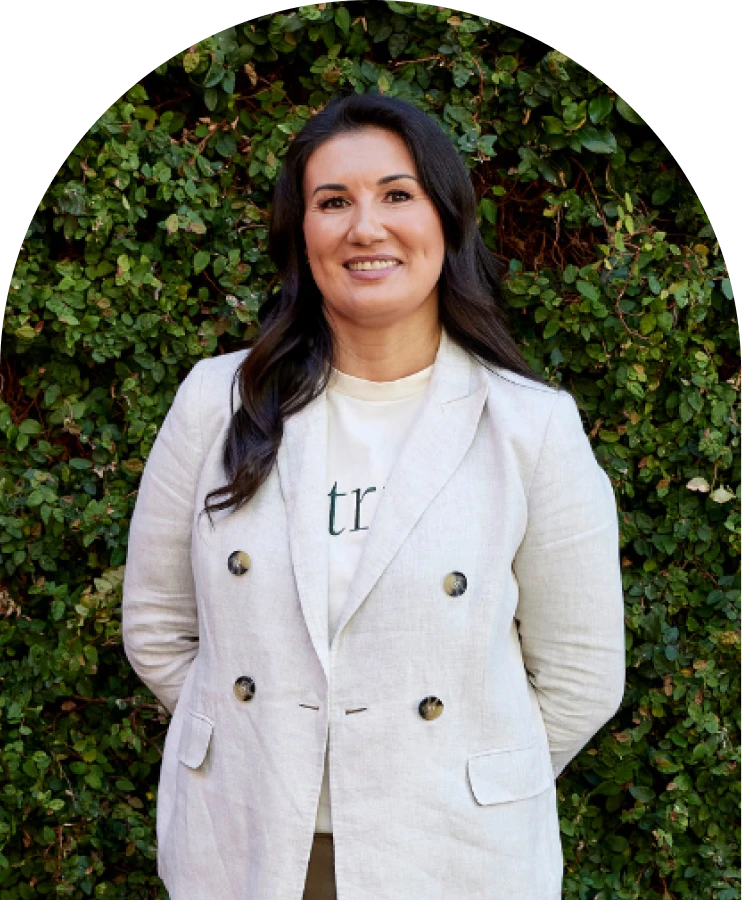
Kady Chemal
Chief Operating Officer at Astrid Dispensary and Clinic
What do you love about being within a team of women leaders?
Women leaders, in my experience, tend to be very collaborative, empathetic, and innovative, which creates a supportive and motivating environment.
It’s the diversity of thought, resilience, and the unique perspectives that each woman brings to the table that I find most enriching. This synergy not only drives us towards our common goals but also fosters a culture of inclusivity and respect.
The strength that comes from embracing diversity is something I deeply value and love about being within Astrid’s remarkable group of leaders. Moreover, as a leader, I am privileged with the humbling responsibility of nurturing the growth of other women, and the profound joy it brings me is beyond words.
What advice would you give to other women considering a career in healthcare?
To women considering a career in healthcare, my advice is to embrace your interests and let them guide you. The healthcare industry offers a vast landscape of opportunities, and finding your niche, especially in the range of areas available now, can be both challenging and rewarding.
The path may not always be straightforward, but your unique perspective and contributions are essential in shaping the future of healthcare.
Remember, resilience, adaptability and your intuition are your greatest assets.
How do you see the role of women in healthcare evolving in the next decade?
In the coming decade, the expanding role of women in healthcare will bring heightened attention to issues that uniquely affect women. As more women assume leadership positions and actively participate in healthcare decision-making, there will be increased focus on addressing women’s health concerns, such as endometriosis.
March, designated as Endometriosis Awareness Month, serves as a poignant reminder of the challenges faced by millions of women worldwide. With greater representation of women in healthcare leadership roles, I anticipate enhanced advocacy efforts, research initiatives, and improved access to care for conditions like endometriosis.
The presence of more women in healthcare leadership positions will not only empower women to take charge of their health, but also will foster a more inclusive and supportive healthcare environment for all.
What are your biggest learning moments or challenges you’ve overcome in your career journey?
This sentiment may resonate with many other women, even those pursuing different career paths- my personal journey involved overcoming deeply ingrained thought patterns inherited from my upbringing. Transitioning from a closed mindset to one of growth demanded intense self-reflection and a confrontation of my own limitations. Though the journey was tough, filled with self-doubt and internal conflict, my determination and commitment to personal development led me towards a transformative shift in perspective.
Today, I perceive challenges not as obstacles, but as avenues for personal growth and self-improvement. Through this transformation, I’ve learned the invaluable lesson that resilience is an innate quality, cultivated from within. Embracing change and adversity has not only fortified my spirit, it has profoundly enriched my life, infusing every aspect with purpose and meaning.
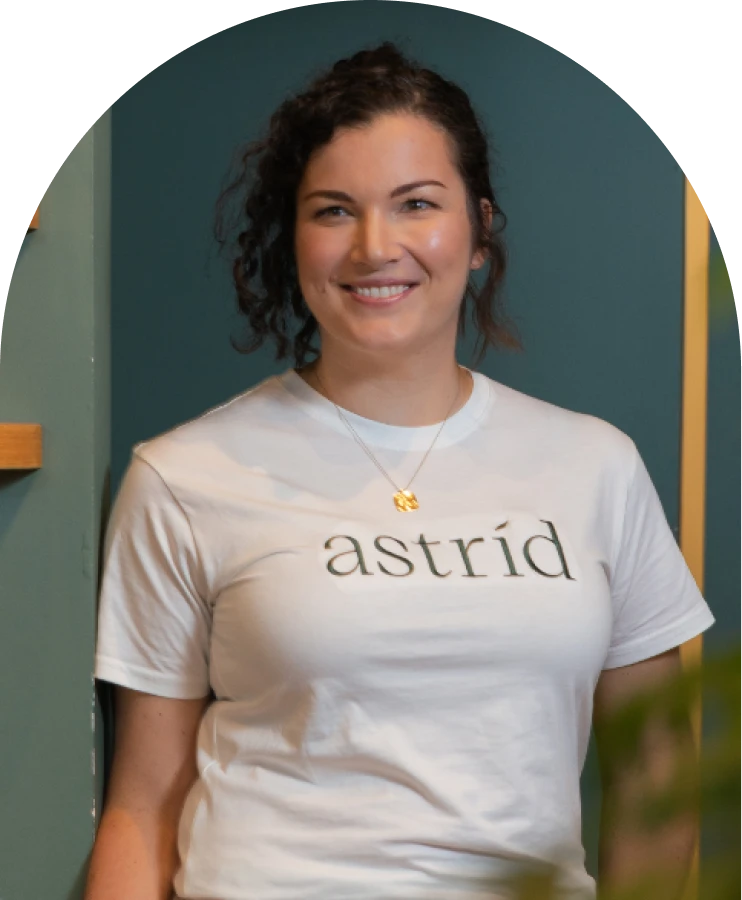
Olivia Lackman
Senior Nurse Lead at Astrid Clinic
What do you love about being within a team of women leaders?
Being a part of a team of women leaders creates an empowering atmosphere that nurtures personal and professional development, which can be transformative for members of the team.
The diversity of perspectives and approaches not only enriches our collective understanding, but also enhances our ability to innovate and lead with empathy.
There’s also mutual support and encouragement that we share. There’s a strong sense of camaraderie among women leaders who are driven by a shared passion for making a positive impact on people’s lives. This support network is invaluable as it not only propels us forward in our careers but also reinforces our commitment to helping others feel their best in their health and wellness journey.
What advice would you give to other women considering a career in healthcare?
For women contemplating a career in healthcare, my advice is to embrace your uniqueness and your strengths. Healthcare is an ever-evolving field, and staying informed and skilled is an essential path. To ensure the best chances of long-term success, it’s important to place emphasis on continual learning and skills development.
It’s helpful to seek out mentors who embody the qualities and achievements you aspire to. These mentors can offer invaluable guidance and support as you navigate your career changes.
Remember that healthcare offers a vast array of opportunities. If one area doesn’t seem like the right fit, don’t be discouraged. There’s a niche for everyone, and finding yours may just require a bit of exploration.
How do you see the role of women in healthcare evolving in the next decade?
Over the next decade, I anticipate significant shifts in the role of women in healthcare. There will likely be a greater emphasis on achieving work-life balance, with more support systems in place to help women navigate the demands of their professional and personal lives.
Additionally, I expect to see an increase in women’s representation in leadership positions, reflecting a broader trend towards gender equality in the workplace. Astrid is already leading by example in this regard.
Another exciting development will be the growing advocacy for women’s health issues. As awareness increases, we’ll see more tailored approaches to addressing these concerns, ensuring that healthcare becomes more inclusive and responsive to the needs of women.
What are your biggest learning moments or challenges you’ve overcome in your career journey?
My career journey has been filled with learning moments and challenges, each offering valuable lessons. In a demanding field like healthcare, taking care of oneself is essential to sustainably caring for others. Also balancing career aspirations with family and personal commitments has taught me the importance of setting priorities and boundaries. I’ve learned to recognise the importance of self-care and self-preservation for the long-term – and I try to encourage all healthcare professionals to take care of themselves too.
Embracing failure as a learning opportunity has also been transformative. Failures are not setbacks but stepping stones to greater understanding and resilience.
To start your journey with natural medicine, complete our free pre-screening questionnaire here or follow us on Instagram for more @astrid.dispensary

